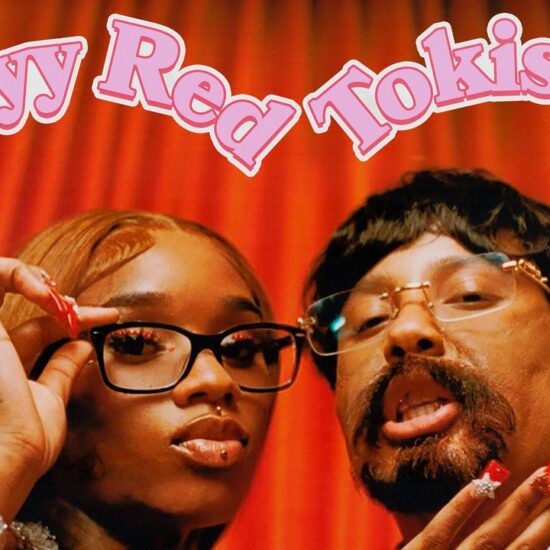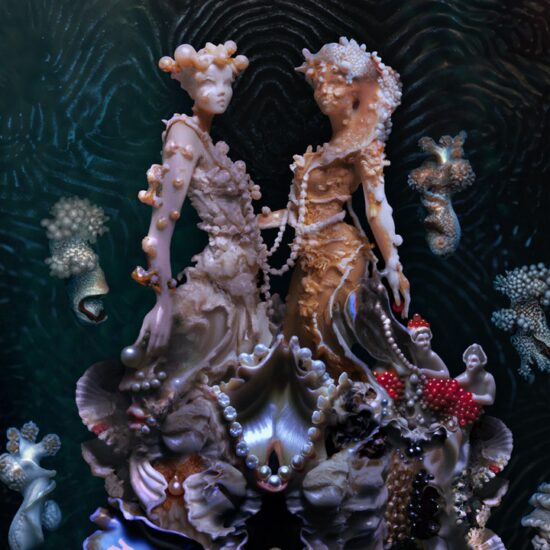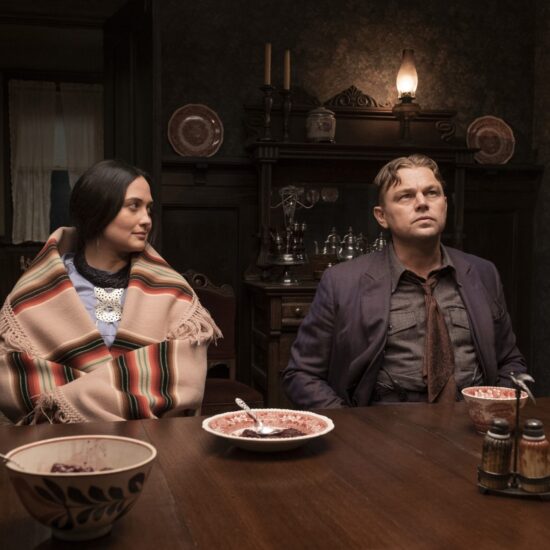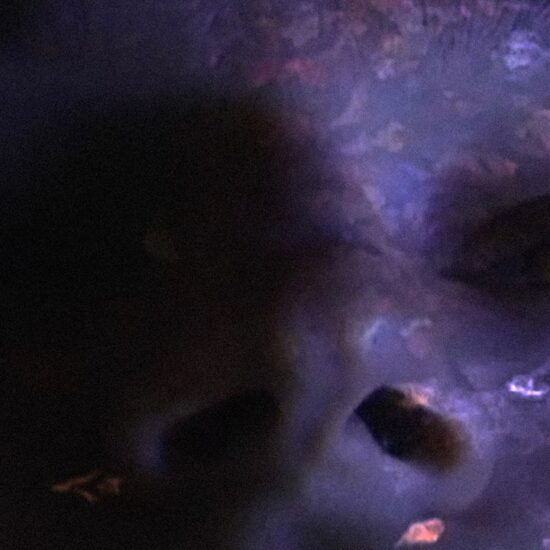
Thor’s history in the MCU has been a tumultuous one, both in terms of his story, and the reception of his films. First appearing in 2011’s Thor, directed by Kenneth Branagh, the film had a positive reception, with most of the praise geared at the setting of Azgard and the character Loki. Then MCU released The Avengers and Thor: The Dark World, both directed by Alan Taylor. These two films were not received as favorably with fans and critics alike picking apart the movie. To make matters worse, even Taylor had expressed dissatisfaction with how the film turned out after its release. While there was some positive attention given to the performances by Chris Hemsworth and Tom Hiddleston, overall these were generally considered the weakest films in the MCU.

Courtesy of Marvel Entertainment
MCU continued pushing on to release Avengers: Age of Ultron and then Thor Ragnarok, which was directed by Taika Waititi. Unlike the previous two films which had more of an emphasis on drama, Waititi’s film had a faster pace, and placed a greater emphasis on comedy, resulting in what many considered the best Thor film, and one of the best films in Phase 3 of the MCU, with praise aimed at its action, performances, humor, and score. The film would also see the best box office success of the Thor films, getting $854 million against a $180 million budget.
With such critical acclaim and financial success, it would make sense that Disney and Marvel Studios would seek a sequel directed by Waititi.
Following the climactic conclusion of the Infinity Saga with Avengers: Infinity War and Avengers: Endgame, Thor finds himself unsure of his place in life, trying to close himself off emotionally to avoid further tragedy. However, when multiple Gods are slain by Gorr the God Butcher, and his old flame Jane Foster, played once again by Natalie Portman, is given the powers of Thor, the titular character finds himself going on a journey to confront the God Butcher, and come to terms with the events of his past, in order to move forward.
To put it simply, if you liked Thor: Ragnarok, this movie provides you with more of that, in fact, on Rotten Tomatoes, the critical consensus is this movie is like Ragnarok redux. That comparison is certainly warranted, but there’s a bit more to it than that. The attempts at humor are ramped up, even moreso than Ragnarok. In some regards, that is a pro and con. On one hand, there is quite a likelihood that there will be some things which will entertain and make you laugh. On the other hand, if you are looking for the dramatic moments to be quiet and taken seriously, then this movie will come across as tonally inconsistent. Even Ragnarok, with its emphasis on humor, took time to let the dramatic moments sink in, such as the conversation Thor and Loki had with Odin prior to Hella’s arrival. In that regard, it’s a bit more accurate to refer to Love and Thunder as a supercharged version of Ragnarok, which is both a good and bad thing.

Courtesy of Marvel Entertainment
This makes certain storylines, such as Jane Foster’s, feel like mood whiplash. Given the severe nature of Foster’s condition in the film, one would think that there would be more moments it would be taken seriously. While Love and Thunder do take time to slow down, these moments are few and far between, and they are often undercut by the typical Marvel-style humor that some have become critical of. As a result, the consistent focus on humor, ironically makes some of the most humorous moments not hit as hard, despite some moments being quite funny.
On the subject of Jane Foster, the character’s journey in this film is easily the most compelling character that has been in her tenure in the MCU thus far. Given she gains the powers of Thor, something that the film does a great job at explaining how and why she gains, some worried that she may very well overshadow Thor himself. Thankfully, this is not the case, as the emotional crux of the film focuses on their relationship, and how both find solace with each other after all the struggles they’ve been through; both have equal importance, and neither overshadows the other.

Courtesy of Marvel Entertainment
The other stand-out performance of this film is Christian Bale as Gorr the God Butcher, easily one of the creepiest villains of the MCU. From the beginning of the film, Gorr’s motivation is both clear, and sympathetic, having been abandoned by the Gods after having suffered great losses. Bale easily steals any scene that he is in, with a highlight coming at the end of the 2nd act. Without giving much away, the setting of this particular scene allows for unique coloring and lighting, and given the redesign of the character from the comics, makes Gorr feel like a creature out of a horror film.
In fact, thematically, the film covers the ideas of confronting death and losing your way. Thor as a character has suffered many losses during his tenure in the MCU, and Love and Thunder makes it quite clear that the journey that the characters go through is motivated by death, and life moving on. With the exception of Thor, the Gods in this movie, who have been staying out of the affairs of mortals and remaining in their own domains, they have not had to confront death. As a result, they do not worry about Gorr’s rampage or plan to eradicate the Gods, even after killing minor Gods. Meanwhile, Thor and his allies, all of whom confronted death, or are confronting death, are actively able to better themselves, learning to make the most of their lives, while the other Gods remain stagnant and forgotten, losing their sense of purpose in life.

Courtesy of Marvel Entertainment
Other characters in the film, such as Korg, Valkyrie, and newcomer Zeus, played by Russell Crowe, are notable standouts, getting quite a few laughs from the audience. Still, much like the rest of the film, the overemphasis on laughs can undercut more serious moments.
The Guardians of the Galaxy also briefly appear in the film towards the beginning, but don’t expect them to be throughout the entire film. The only reason they are there is essentially so that Star-Lord can explain to Thor, and thus to the audience, what Thor’s arc in the film will be.
Of course, the action and effects are visually impressive for the MCU, and the score is highly energetic, much like Waititi’s previous Thor film, although that is mostly par for the course with most Marvel Studios films, and given the more fantastical nature of the film, the heavy use of CGI in crafting unique settings isn’t as distracting as other films. As for the post-credit scenes, the first one sets up the appearance of another character and possible next adversary for the God of Thunder, while the second serves as a means of further wrapping up one of the film’s storylines, while also providing an appropriate cameo to go along with it.
Overall, Thor: Love and Thunder can provide a fun time, and chances are, if you enjoyed Thor: Ragnarok, in particular the comedy of it, you’ll likely enjoy this film. The characters are likable, with Portman and Bale being notable highlights, but the over-emphasis on humor can take away from the film’s more dramatic moments. It isn’t as strong as Waititi’s previous MCU outing and isn’t among the strongest MCU outings in general, but it provides a fun time.
Rating: ⭐️⭐️⭐️⭐️ 4/5
Graduated from Point Park University in 2021 with a Degree of English Creative Writing.
Author of the Chronicles of a Broken World Series
Avid Nerd and Enjoyer of All Things Fun and Thoughtful













